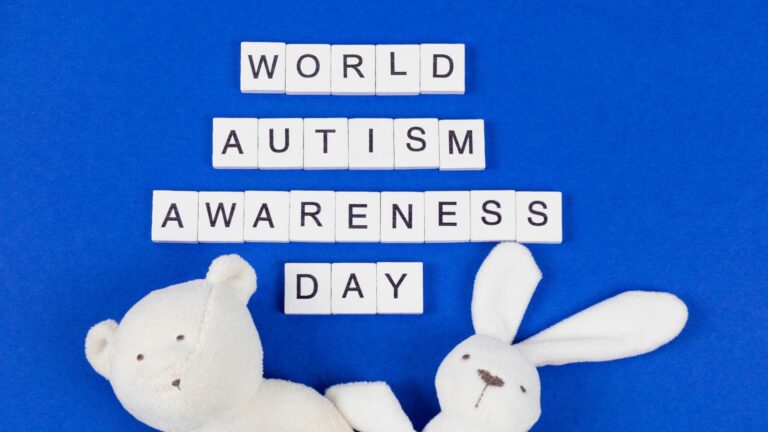What is an autism-friendly community?
By their inherent nature, humans are sociable creatures with a fundamental need for interaction to lead fulfilling lives. Life is about meaningful experiences, and individuals with autism spectrum disorder (ASD) should never have to miss out on them. Instead, neurodiversity should pave the way for inclusion in a community that offers unwavering support during challenging times and warm companionship during joyous ones. These communities for autism are an invaluable resource for parents, caregivers, neurodiverse individuals, and allies who seek to connect with others navigating the journey of neurodiversity. It’s common for those new to this path to wonder, “What is an autism-friendly community?“
In this blog by Texas ABA Centers, you will understand the definition and benefits of autism-friendly communities and provide a straightforward guide to help you find the right one for you and your family.
What is an Autism-Friendly Community?
People with autism and their caregivers often lead somewhat isolated lives due to the complexities of the disorder. These can include difficulties in communication and interaction, social anxiety, and sensory overload. However, multiple research studies, including one conducted by Frontiers in Psychology and shared by the National Library of Medicine, have confirmed that communities for autism play a significant role in alleviating feelings of isolation and stress in individuals with autism and their caregivers.
Major cities such as Austin, Dallas, and Houston are home to vibrant autism communities that provide invaluable support and resources to parents and caregivers of neurodivergent children. These communities not only foster acceptance of autism but also actively advocate for the rights of those on the spectrum. They disseminate crucial information, consider the unique needs of neurodivergent individuals, and warmly welcome those who wish to join.
At Texas ABA Centers, we have compiled a comprehensive guide for autism support groups in Texas. This guide can prove instrumental for those seeking an autism-friendly community that offers a sense of belonging, understanding, and mutual support.
Benefits of Joining Communities for Autism
The experience of caring for a child with autism can pose additional challenges for parents. It’s not uncommon for families with neurodiverse members to feel somewhat isolated or self-conscious about partaking in festivities, including Halloween or New Year’s holidays. It is necessary to find understanding and empathy from a community that understands autism and can offer help to prevent isolation and further stress.
Communities for autism offer numerous exceptional benefits, such as:
- Preventing or reducing isolation for neurodiverse caregivers and families
- Alleviating the stress stemming from the intricacies of caring for an individual with autism without support
- Providing opportunities for socialization within an inclusive and friendly environment
- Disseminating information about academic and funding opportunities
- Instilling a sense of belonging in parents and caregivers
- Organizing workshops, seminars, or trainings on autism to enhance understanding of the disorder and improve caregiving skills
- Offering information on emergency resources
- Sharing details about respite care or home health services
- Providing financial support to offset the costs of autism care, like autism fundraising events, such as the Autism Speaks Walk
- Mobilizing community members to assist with daily tasks that might be challenging due to difficult circumstances, such as grocery shopping or transportation
- Establishing a robust support system to meet the demands of autism care better
Participating in communities for autism can be an invaluable experience for caregivers, parents, and neurodiverse individuals. A robust support system increases resilience, equips you with additional resources, and provides strategies to overcome the adversities we all face. Furthermore, fostering your child’s social interaction in a more accepting environment is an excellent way to help them reduce anxiety and depression, according to research shared by Sage Journals.
Finding the Right Communities for Autism
There are a variety of community resources for autism, ranging from online forums to in-person communities. Understanding your specific support needs is essential, as each group tends to focus on different resources to find the most suitable autism-friendly community. Here are some guidelines on how to identify the right autism support groups:
- Seek recommendations from your child’s doctor or autism specialist
- Conduct online searches for autism or caregiver support groups within your locality
- Enquire from other parents, family members, and friends about reputable communities for autism or forums they know
- Participate in autism support conferences and events. These gatherings offer expert knowledge about autism and serve as excellent platforms for connecting with other neurodiverse families
- Compile a list of potential support groups and research each to determine the most suitable. Every group possesses its unique culture, mission, and environment
- Reflect on the kind of community you desire. Is it exclusively for parents, or will it encompass more allies and loved ones?
- Consider your specific needs when engaging with communities for autism
- Identify the topics you wish to gain more insight into based on your loved one’s needs
- Consider the dynamics of the support group, such as meeting times and the mode of meetings – are they online or in-person? Choose the one that aligns best with your schedule and requirements
Texas ABA Centers and Community Resources for Autism
Communities for autism serve as invaluable platforms for fostering relationships, finding companions, offering support, encouraging growth, and sharing essential information about caring for a loved one with autism. This guide, provided by Texas ABA Centers, is designed to assist you in identifying an autism community that is beneficial to your life and fosters authentic connections.
Texas ABA Centers underscore the significance of these communities for autism. We provide a comprehensive support network through our ABA therapy, autism diagnosis, and early intervention services. We aim to facilitate your child’s holistic development and bolster their progress towards achieving their goals. Furthermore, our team keeps abreast of the latest autism-related events and resources. Should you require any information, they are more than willing to assist.
For further details about our ABA therapies and autism services, please call us at (877) 771-5725 or schedule a free consultation by completing the online form.








